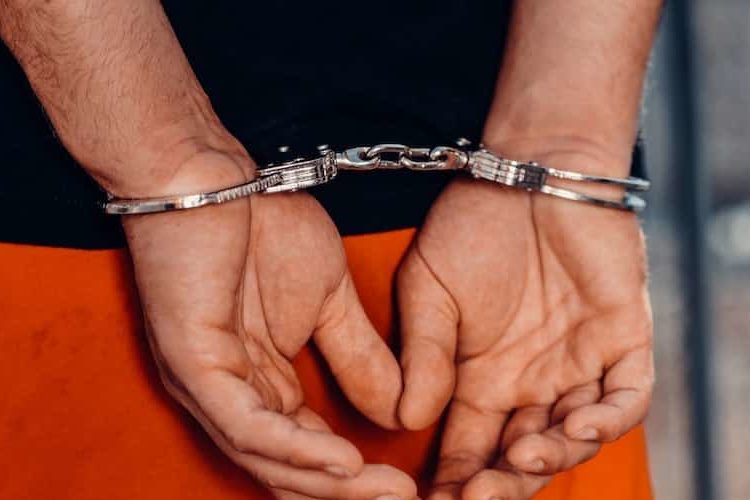
Why Psychedelics Are Illegal
Why are psychedelics illegal?
So, you have been reading all of the wonderful benefits about psychedelics and you are pondering the question as to why psychedelics are illegal. Is this because they are the pharmacological equivalent of lawn darts or is it simply an other example of enforcement run amok?
I think the question you are really trying to ask is “What is the reasoning behind the legal status of psychedelics” and this is what we are going to lay out for you today.
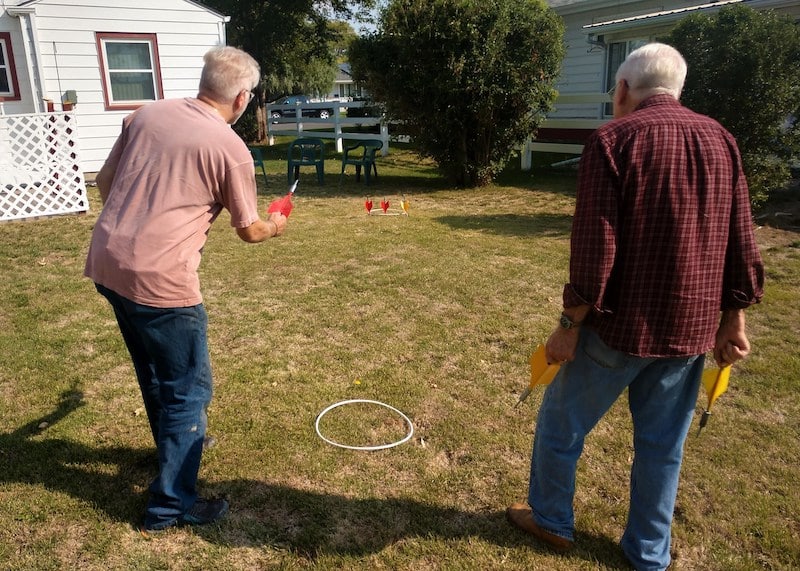
Table of Contents
Why Are Psychedelics Illegal?
Well, if you insist on asking a simple question, I’ll give you simple answer. The explanation of why psychedelics are illegal is because the government says so.
In the US, it is because they are identified as Schedule 1 drugs by the DEA. In Canada, psychedelic drugs refer to “controlled substances” under the Controlled Drugs and Substances Act (CDSA). Under the CDSA, most psychedelics refer to Schedule 3 substances, including psilocin (magic mushrooms), mescaline (peyote and San Pedro cactus), LSD, psilocybin and DMT (found in many plants, most commonly used in ayahuasca as ingredient).
I am assuming you came here looking for something a little more substantive than this on the background of the legal status of psychedelics, so let’s start with a little walk down drug enforcement memory lane.
The Modern History Of Drug Enforcement
For one of the iconic figures of the psychedelic movement, Terence McKenna, psychedelics were as “catalysts of intellectual dissent.” In The Archaic Revival, he hypothesized that psychedelics had made illegal “not because it troubles anyone that you have visions” but because “there is something about them that casts doubts on the validity of reality.”, making it difficult, for societies to accept them.
Of course, you are free to take this as the rationale for the legal status of psychedelics, but I think it gives drug enforcement policies too much credit for being insightful and enlightened for interpreting the impact of this class of drugs in such a way. The real answer, much like most things in life, is much simpler.
The Federal Bureau of Narcotics
The Federal Bureau of Narcotics (FBN), which turned to the Drug Enforcement Agency (DEA), was the driving force behind criminalization. Borrowing Harry Anslinger’s use of cannabis legislation to target African-American and Mexicans jazz musicians by imposing stricter regulations regarding the use of marijuana for political means, the attack on psychedelics provided a hindrance from the ongoing Vietnam War.
Beginning in 1968 with the Staggers-Dodd Bill, which revised the Food, Drug, and Cosmetic Act, made psilocybin mushrooms’ possessing a federally illegal act and culminating introduction of the drug scheduling system with the passage of the Comprehensive Drug Abuse Prevention and Control Act in 1970. In addition to scheduling, the legislation compelled pharmaceutical companies to maintain stringent records and ensure the security and safety of their drug inventory.
Understanding Drug Scheduling
Drug schedules classify drugs, substances, and chemicals into distinct drug categories that are defined by medical use and each specific drug’s potential to be used for abuse and dependency.
Drugs classified as Schedule 1 are highly prone to misuse and provide no medical benefits, while those under Schedule 5 are deemed the least addictive and offer the highest potential for clinical applications.
In the US, psychedelics were all lie under Schedule 1, while in Canada, some are schedule 1 while others are schedule 3. Despite more than a thousand of clinical research studies conducted during the 1950s and early 1960s had showed the potential usefulness of drugs like LSD in treating addiction and mental health disorders, this has not been given due consideration.
The Convention on Psychotropic Substances of 1971

The next stop on our tour of historically bad decisions in drug enforcement is the UN Convention on Psychotropic Substances of 1971, which updated
The Single Convention on Narcotic Drugs of 1961 by including controls for psychoactive drugs such as amphetamine-type stimulants, barbiturates, benzodiazepines, and psychedelics.
Drug use saw a significant rise in Western developed countries during the 1960s, with a surge in young people experimenting with hallucinogens, stimulants, and other substances. The rise in drug use posed a challenge for law enforcement as many jurisdictions lacked laws to prosecute those involved in the use and trafficking of these drugs.
In 1968 the United Nations Economic and Social Council (ECOSOC) urged nations to restrict the use of such drugs to medical and scientific purposes and to implement import and export regulating measures. The problem was that ECOSOC’s United Nations Commission on Narcotic Drugs could not reach a consent on the application of the Single Convention on Narcotic Drugs, 1961 to psychoactive substances as the way the Single Convention was structured. The lack of clarity surrounding the applicability of the Single Convention on Narcotic Drugs hindered efforts to establish global regulation of these substances under the treaty. So much to the disappointment of bureaucrats and enforcement agencies everywhere, a new broader scoped convention would be necessary with an aim to bring those substances under supervision.
According to Canadian government reports, the development of this convention was quite divisive, with two factions forming. According to the report, “One group included mostly developed nations with powerful pharmaceutical industries and active psychotropics markets . . . The other group consisted of developing states…with few psychotropic manufacturing facilities”.
As with all things in life, the issue boiled down to the dollars and cents of it all.
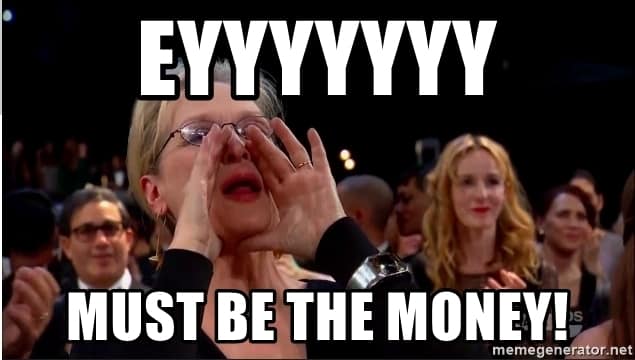
The “organic drugmaking” (this may be the best euphemism for drug growing I have ever heard) states that relied on the cultivation of cannabis, opium and coca – faced economic challenges due to the restrictions imposed by the Single Convention on Narcotic Drugs. These states advocated for stricter control on synthetic drugs, while states that produced synthetic drugs opposed such regulations.
Despite efforts by states reliant on the cultivation of cannabis, coca, and opium – known as “organic drug making” states – to push for stricter regulations on synthetic drugs, the pharmaceutical industry’s lobbying power proved more effective. Consequently, the global regulations that emerged were notably less stronger than those outlined in the Single Convention on Narcotic Drugs.
Meanwhile, In Canada….
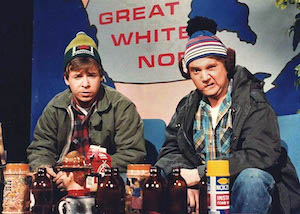
In Canada, controlled substance were regulated by the Food and Drugs Act. Parts III (was enacted in 1961) and IV (was enacted in 1969), were established to implement the necessary controls outlined by the Convention on Psychotropic Substances.
- Part III handled “controlled” drugs including methaqualone, amphetamine and phenmetrazine, that are drugs with recognized medical applications.
- Part IV of the regulations put attention on “restricted drugs” outlined in Schedule H, which are substances that only have the legitimate use in scientific research. This includes hallucinogens like DMT, MDMA and LSD. In total, the regulations established regulated substances in eight different levels, which were categorized from Schedule A to Schedule H.
Parts III and IV were repealed by the Controlled Drugs and Substances Act in 1996.
Politics: The Real Reason Why Psychedelics Are Illegal
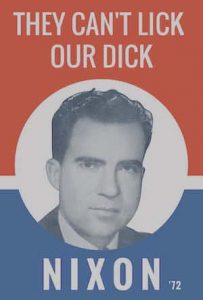
If you made it through all the “in depth legal reasoning”, which basically boils down to “Because I said so”, something not much different than what you heard from your parents as a child when you asked them for their reasoning as to why you were prohibited from doing something, like sitting too close to the TV or playing with lawn darts….(wait, those were actually dangerous).
Without wanting to sound all tin foil hat, the main motivations behind why psychedelics are illegal boils down to the politics of Richard Milhouse Nixon.
As written in Harpers Magazine, the war on drugs was simply an attempt by Nixon to get reelected by creating an enemy and then campaigning against it. As quoted by Dan Baum in 1994, John Ehrlichman, the convicted Watergate scandal conspirator, said the drug war meant to be used as a tool to attack Nixon’s political opposition (that is not so coded language for black people and critics of the Vietnam War).
Baum also points out that since its creation as a political tool, the war on drugs has been used by almost every president, Republican or Democrat alike, ever since.
During the Nixon campaign in 1968 and later during his presidency, the administration viewed the black people and antiwar left as its two adversaries. “You understand what I’m saying? We knew we couldn’t make it illegal to be either against the war or black, but by getting the public to associate the hippies with marijuana and blacks with heroin, and then criminalizing both heavily, we could disrupt those communities. We could arrest their leaders, raid their homes, break up their meetings, and vilify them night after night on the evening news. Did we know we were lying about the drugs? Of course we did.”
John Ehrlichman as quOted by Dan Baum
But let’s get real for a moment, why are you really googling “Why psychedelics are illegal”? Is it maybe because you want to know how you can get your hands on some with minimal legal repercussions?
Can You Legally Obtain Psychedelics?
Brazil, Vietnam, Jamaica and the Netherlands allow recreational consumption of psilocybin mushrooms.
Can You Get Legal Psychedelics In the United States?
As we have written previously, the movement to decriminalize psilocybin in the United States began to gain traction in the late 2010s. The city of Denver, Colorado made history in May 2019 by becoming the first city in the country to decriminalize psilocybin.
Advocates for the decriminalization and therapeutic use of psilocybin have pointed to recent research indicating its potential medical benefits. In November 2020, Oregon became the first state in the US to legalize psilocybin for therapeutic use and also decriminalize it. The move was made through the passing of Oregon Ballot Measure 109, a landmark decision in the ongoing effort to legitimatize psychedelics and expand access to alternative forms of treatment.
Having said that, let’s be very very clear – The use, sale, and possession of psilocybin in the United States, despite state laws, is illegal under federal law.
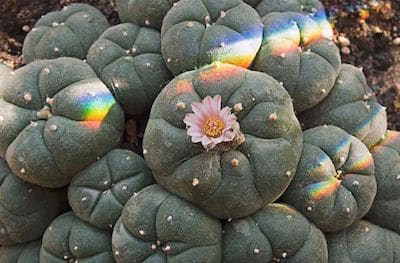
Peyote is decriminalized under US federal law for Indigenous people. According to the 1994 Amendment to the American Indian Religious Freedom Act of 1978 (AIRFA), the legitimate and customary use, possession, or transportation of peyote by Indian individuals in the course of Indian traditional religious ceremonies is legal, which cannot be forbidden by the United States. The National Council of Native American Churches (NCNAC) requested that peyote not be included in decriminalization legislation, citing a need to preserve the plant, as well as the sacred tradition it belongs to.
The President of the Native American Church (NAC) of South Dakota, Sandor Iron Rope believes the OK’ing of these substances without cultural context is at the root of the problem. The California decriminalization bill excluded peyote from the state’s list of decriminalized drugs due to input from indigenous people. However other jurisdiction have decriminalized peyote, so to say the point is contentious is probably an understatement.
Current US Legal Challenges to Psychedelic Prohibition
Although not intended to advance the cause of psychedelic legalization for recreational purposes, in March 2021, the Advanced Integrative Medical Science Institute (AIMS) initiated legal action by bringing a lawsuit against DEA for its failure to put up right-to-try laws that would allow the usage of psilocybin to treat terminally ill patients.
Amid the case, AIMS invoked the federal Right to Try Act (RTT) which approved investigational medications that were not yet certified by the U.S. Food and Drug Administration (FDA) to patients diagnosed with life-threatening conditions. AIMS argued that the DEA’s refusal to put up right-to-try laws was preventing terminally ill patients from accessing psilocybin treatment under the RTT.
A bipartisan group of attorneys general from eight U.S. states and the District of Columbia has sided with cancer patients in a lawsuit against the federal Drug Enforcement Administration (DEA) that seeks legal access to psilocybin, a compound found in psychedelic mushrooms, for end-of-life care. And if you want more proof that hell may have frozen over, both the the Goldwater Institute, a conservative libertarian think tank that has been a leader in drafting and sponsoring state and federal right-to-try legislation, and the ACLU of Washington filed separate amici briefs in the case.
The argument focuses on whether the DEA’s conclusion that it could not waive any part of the federal Controlled Substances Act (CSA), which bans psilocybin except for limited research purposes, could even be appealed.
The clinic, the Advanced Integrative Medical Science (AIMS) Institute, asked the DEA for permission to use psilocybin under Washington and federal “right to try” laws, to which the DEA responded that there was no way for it to grant a waiver for the use of a Schedule I drug under right-to-try laws.
Court documents indicate that the clinic is basing its legal argument on the fact that a response to a request for instructions cannot stand as a final order and the DEA’s position is there is nothing the clinic can do in terms of an administrative process of appeal.
The U.S. Department of Justice, arguing for the DEA, said the agency’s determination that the CSA did not allow it to grant waivers under right-to-try laws was not subject to review. Further more, when asked how the clinic could get the issue before a court, the DoJ responded that if the clinic administered psilocybin, and the DEA brought an enforcement action, it could challenge that action as unlawful.
The judge handling the case seemed to indicate that this was a non starter for the DEA, as the judicial process does not require a party to go and subject themselves to liability in order to appeal a current law. A ruling on this matter has not been handed down.
Can You Get Legal Psychedelics In Canada?
Unless you have either a Section 56 exception or a dealer’s licence, the answer is simply no. In general, the use of controlled substances is prohibited under the Controlled Drugs and Substances Act (CDSA), except in cases where an exemption has been authorized by section 56 of the CDSA or its accompanying regulations.
Section 56 Exceptions
With Section 56 exemption, a medical professional can prescribe and take certain controlled substances with no legal ramifications, which allows them to provide better treatment for people with conditions that are difficult to treat.
The use of psychedelic substances like LSD, ibogaine, MDMA and psilocybin in psychedelic-assisted psychotherapy is being studied in Canada, and Section 56 exemptions are seen as a necessary initial step to achieving medical recognition for these substances. According to section 56 of the CDSA, the Minister of Health has the authority to permit exemptions that allowing the usage of controlled substances when it is identified necessary in the context of medicine or science or if it concerns public interest. The precise process and circumstances for obtaining an exemption to use psychedelics under section 56 of the CDSA are not yet fully defined.
In 2017, Bruce Tobin applied for Canada’s first class-action exemption to criminal drug laws on behalf of all terminally ill cancer patients so they could receive medical psilocybin to tackle with their end-of-life emotional distress.
Denied by Health Canada after three years of negotiation, it began to approve individual patient applications in August, 2020 – at least 38 by now – according to Section 56 of the Controlled Drugs and Substances Act.
Dealer Licensing
Individuals who are Canadian residents or corporations with a central office located in Canada are qualified to submit an application for a dealer’s license on controlled substances. This allows the import, export and sale of psychedelic substances to any organization for research or clinical applications in which the institution must have gained permission and authorization from Health Canada.
Although there is no law explicitly permitting the act of selling grow kits and spores for magic mushrooms in Canada, this activity has been endured for a considerable period. Supporters of this practice argue that spores are legal because they do not actually contain the controlled substance- psilocybin.
Despite the presence of mescaline, peyote cactus is not listed as a controlled substance under Schedule 3 of the CDSA and is therefore legally permitted to be grown, sold, and consumed in Canada. It is important to note, however, breaking the law under the Controlled Drugs and Substances Act (CDSA) would be inevitable if one were to extract or isolate mescaline originated from peyote plant because it would lead to possessing a controlled substance.
The exception for peyote is unique and is based on its historical and cultural significance to Indigenous communities in Canada.
Conclusion: Why Psychedelics Are Illegal
If you’ve read through this article and come to the conclusion that the answer to the question of “Why psychedelics are illegal” is at best an example of the nanny state gone overboard or at worst, a political scheme aimed at maintaining power based on the creation of political boogey men, you are probably on the right track.
For insights into both the decriminalization of psychedelics and their promising role in well-being our Ultimate Psychedelics and Mental Wellness Guide is your go-to resource.
Learn More About Decriminalization
If you are curious about the decriminalization of psychedelics, check out these other articles on Frshminds:
Sources
Psychedelics and Canada’s Regulatory Landscape
Government of Canada: Psilocybin and psilocin (Magic mushrooms)
Medical psilocybin use should be decided by a patient and their doctor, not the government
Does the DEA Have to Allow Psilocybin Access for Terminally Ill Patients?
Report: Aide says Nixon’s war on drugs targeted blacks, hippies
The push to legalize psychedelics has ignored Indigenous communities

Comments